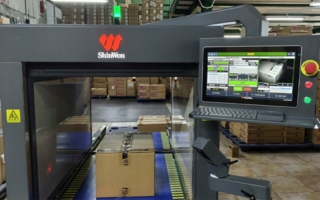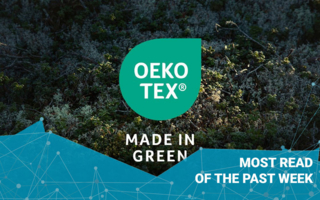06/12/2021 – Supply Chain Due Diligence Act — auf Deutsch lesen
Do your homework now!
The preparations for implementing the regulations of the new Supply Chain Due Diligence Act from 2023 can take months. Therefore: Take action now!
Economists are already calling June 11, 2021, a turning point in German history: On that day, the German government passed the Supply Chain Due Diligence Act. The goal is clear: It is intended to ensure that – especially in developing countries – environmental and human rights standards are met. The regulations will not apply until 2023, initially to companies with more than 3,000 employees, and in 2024 also to companies with more than 1,000 employees.
All suppliers are affected
2023 – still more than a year to go. Many supply chain managers who have not yet addressed the issue are putting it off for the time being due to operational business. According to supply chain management (SCM) and corporate social responsibility (CSR) experts, this is a mistake, because preparations for implementing the regulations can take not just weeks, but months. And anyone who leads a company that employs fewer than 1,000 people can’t easily put the issue to bed either. That’s because the experts point out that medium-sized companies that supply large corporations should also be concerned with the Supply Chain Due Diligence Act. “Corporations will make sure in new contracts that not only large, but all suppliers comply with the legal CSR regulations and that their supply chains are transparent,” emphasizes Ralf Duester, co-founder of the software company Setlog. The Bochum-based company has numerous customers – from medium-sized companies to corporate groups – who have been managing their CSR with supply chain partners for years via the cloud-based Setlog software OSCA.
“The law is long overdue”
Duester disagrees with business and politics critics who describe the regulations planned for 2023 as ineffective, too expensive and bureaucratic. “Given the fact that currently just one-fifth of German companies with more than 500 employees fulfill their due diligence obligations when it comes to respecting human rights, the law is long overdue. I understand when critics call for an EU-wide harmonized solution so that competition is not distorted. It also makes sense to me that proceedings cannot be initiated against a company with a simple e-mail and without serious evidence. But the argument that the planned regulations for controlling suppliers in the first chain link are technically unfeasible and too bureaucratic was refuted by our customers years ago. When supply chain partners communicate via common software, they bring transparency to the chain. However, anyone who manages their global supply chain with phone calls, e-mails or self-generated Excel lists today is not going with time,” says Duester.
Three phases to a sustainable supply chain
In the Setlog tool, companies from all industries can store their customer-specific requirements along their supply chains. For example, they can create specifications for auditing suppliers, define their own processes, set up an individual code of conduct, and demand and track clearly defined corrective actions from suppliers. Companies can also specify that supply chain partners must answer individual questionnaires and that unannounced audits take place. When using the tool, it is not relevant under which guidelines a company is audited – whether Fair Ware, Fairtrade, BSCI, Sedex or others.
Setlog’s experience has shown that a three-phase model leads most quickly to the desired results. These phases are:
1. Compiling a collaborative supply chain: The aim is to identify and integrate the right partners for a future central IT tool. Partners include suppliers, factories, warehouses, purchasing offices, quality inspection bodies, laboratories and customers.
2. Reorganization of partners: In the short term, it must be clarified who works with whom and what the structure of the supply chain should look like. The long-term goal should be that partners are selected based on defined criteria.
3. Use of software: The IT tool should resolve media discontinuities. All partners must work centrally on a customer-based software product to be able to exchange information in real time.
One of the long-time OSCA users is the German fashion discounter KiK Textilien und Non-Food GmbH in Bönen. The majority of goods come from China and Bangladesh – the rest mainly from Pakistan, India and Turkey. Anyone working with KiK has to meet high standards. Merely offering lower prices than the competition and good delivery reliability are not reasons for the company to relist a supplier.
KiK brings transparency to the supply chain
“Anyone who wants to cooperate with us is not only checked at the beginning, but has to undergo regular audits,” Ansgar Lohmann, who heads the CSR department at KiK, emphasized in October at the German Logistics Congress 2021 in Berlin. The audit is extensive. Ten sub-areas along the core labor standards of the International Labor Organization ILO are audited in a matrix developed by the company. The auditors commissioned by KiK primarily examine working hours, minimum wages, social benefits and environmental protection requirements on site. Additionally, they also check whether fire extinguishers, fire doors and smoke detectors are in place and look at the building’s statics. The inspectors, who are liable to KiK for their findings, also keep an eye on official approvals such as fire protection, environmental or business licenses. The following applies to all suppliers: Those who show no willingness to develop further are not even listed. KiK carries out a total of 800 audits per year in its supplier pool.
Managing the large number of audits is a challenge. KiK realized years ago that a flood of e-mails and Excel spreadsheets are unsuitable for managing such a Herculean task and bringing transparency to the supply chain. In 2014, the company decided to look for software support. “It was important for us to have a holistic approach with factory checks in an automated system that delivers data in real time,” Lohmann reports.
Managing audits with software
After analyzing various vendors, KiK chose OSCA software with the Vendor & Compliance Management tool VCM, now known by the acronym CSR. The solution can be used as a stand-alone or in combination with the SCM module of OSCA. It covers the entire supply relationship from onboarding through quality management, audits including rework, document management, reporting and ratings. After the final decision for a software, everything happened quickly. In May 2015, the discounter gave the green light for the IT project. Less than three months later, it went live with OSCA.
The daily routine follows a predefined pattern: If an audit is to be carried out, the CSR team commissions an auditing institute via OSCA, which confirms the agreed date and the order. The audit report, including photo documentation, is uploaded to OSCA. The audit criteria are weighted differently to produce an overall score. If improvements are necessary, they are discussed with the responsible persons on site. Deficiencies must be rectified within a specified period. An early warning system displays all audits on a dashboard of the CSR team and automatically informs employees about the progress of rectifications according to a traffic light system.




